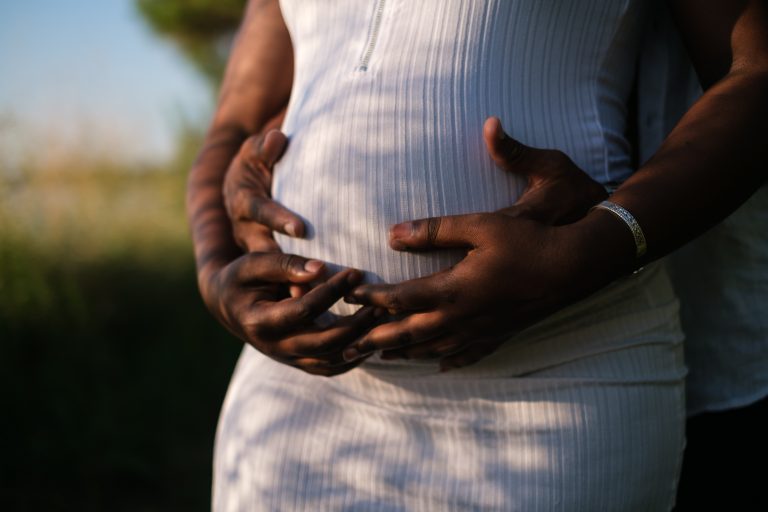
By SWNS Staff
NEWS COPY W/ VIDEO + INFOGRAPHIC
Over six in 10 American women planning to have a family said it’s an absolute deal-breaker in the dating scene if their partner doesn’t want kids, according to new research.
The study asked 3,000 American women aged 18-35 (approximately 2,100 of whom plan to have children in the future) about their family planning goals and how comfortable they are discussing these plans with their partners.
With 64% of women planning to have kids stating they need that support from their partner, the survey pinpointed it takes an average of two years for “the talk” about kids to come up.
“The talk” isn’t as daunting as it may have been in the past, however, as 16% of women polled shared they feel comfortable discussing family plans with a partner within the first year of dating.
Conducted by OnePoll on behalf of First Response, the survey also examined the point in women’s lives that they wanted to start having their families and the effects the COVID-19 has had on these plans.
Naturally as partners discuss their family planning options, fertility comes into play. The results showed the average woman starts to think about their fertility at 24 and for those with children or planning to have children (approximately 2,500 women), they shared they started planning to have kids just a year later at 25.
Given the current coronavirus crisis, a third of women surveyed shared that these plans are currently on hold because of the pandemic. Thirty-eight percent of these women shared their anxiety and stress around the pandemic has led them to postpone conceiving and a further 32% shared they would be waiting for a vaccine for the novel coronavirus before expanding their families.
Unprecedented events aside, the results found that nearly seven in 10 of all women surveyed are comfortable having a conversation with their doctor about their fertility. A further 43% of women also shared they turn to friends and family for fertility advice and 41% have turned to Dr. Google.
“We are glad to see women are having open conversations with their doctors and significant others to learn about their fertility and address any concerns they may have while trying to conceive. It is vital that women discuss fertility and conception – even if baby-making is only in the near future,” says Eileen Hsu, Director of Marketing for First Response.
As women feel comfortable having honest conversations about family planning, the survey also found that 57% of women polled also said they would feel comfortable having a child on their own.
Women were asked what they’d like to see happen in their lives in order for them to feel comfortable having a child on their own and 68% said they want to ensure they have a steady job or income.
Forty-nine percent of those surveyed who are hoping to have another child in the future or their first one (approximately 2,500 women) shared they currently feel financially stable enough to have a child.
This same group of women also shared they’re hoping to have an average of $4,740.98 saved before their little one comes along.
The survey also asked women about how early they would take a pregnancy test when they suspect they may be expecting and found four in 10 would wait until they miss their period before taking a pregnancy test.
Twenty-two percent of women polled said they would wait until they anticipated their period would arrive and 15% would even take a pregnancy test immediately after having unprotected sex.
“As evident by the research, the vast majority of women are unaware they don’t have to wait until a missed period before taking a pregnancy test. Women should keep in mind that there is a window of time leading up to the day of a missed period where they can get an accurate result, just like they would if they take one after a late period. Using a test like First Response can help you begin making healthy choices for yourself and your baby,” advises Mary Jane Minkin, MD, Clinical Professor of Obstetrics and Gynecology at Yale University.
No matter what their pregnancy journey looks like, six in 10 women surveyed said hearing their baby’s laugh will always be the best part of being a mom, closely followed by watching them take their first steps and hugging them.
TOP CONCERNS WHEN TRYING TO CONCEIVE
- Financial stability – 52%
- Being worried they’ll have a difficult pregnancy – 47%
- Age – 41%
- Infertility – 22%
- History of miscarriage – 11%
HOW LONG WOMEN WAIT TO TAKE A PREGNANCY TEST
- After they missed their period – 40%
- Until they anticipated they would get their period – 22%
- After a missed period and seeing their doctor – 16%
- Immediately after unprotected sex – 15%
BEST PARTS OF BEING A MOM
- Hearing their laugh – 60%
- Watching them to their first steps – 59%
- Giving them hugs – 59%
- Teaching them new skills – 58%
- Celebrating their first birthday – 57%
- Celebrating their first Christmas – 52%
- Watching their performances (I.e. band, orchestra, school play) – 51%
- Taking care of them when they’re sick – 51%
- Teaching them how to read – 50%
- Tucking them into bed – 50%
- Watching them graduate high school or college – 50%
- Cooking meals for them – 49%
- Reading them bedtime stories – 49%
- Helping them with their homework – 46%
- Teaching them how to swim – 46%
- Packing their lunches – 45%
- Driving them to school – 40%
- Soothing their first heartbreak – 40%
- Sending them off to college – 38%
- Teaching them how to drive – 38%



















